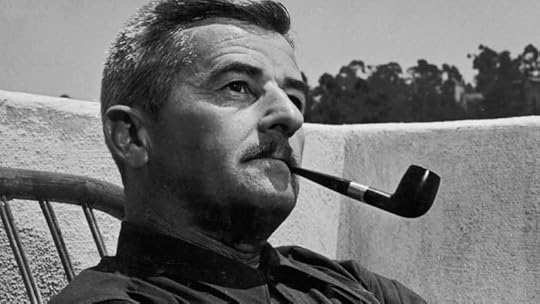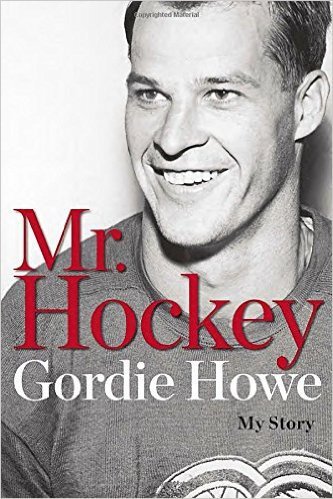Richard Harris's Blog, page 42
October 26, 2016
Word of the Day
I can’t believe I didn’t know the word “sapiosexual” before today. Where have you been all my life! I am shamed. And shameful. And somewhat shameless.
You know how guys are often criticized for not looking past a person’s physical beauty, and women are always going on and on about how sexy it is when men chug beer, talk sports, and leave the toilet seat up? Well, you now have a word to add to your linguistic arsenal should you not be this shallow:
sapiosexual
noun
1.
a person who finds intelligence to be a sexually attractive quality in others.
adjective
2.
noting or relating to such a person.
Thank me later.
However, after doing my due diligence, I discovered that there is no antonym for this word. Consequently, and of significant consequence, I’d like to offer the Oxford English Dictionary (thank me later, OED) the Word of the Year for 2016:
trumpiosexual
noun
1.
a person who finds unrelenting ignoramuses, blockheads and sexual deviants to be a sexually abhorrent quality in others.
adjective
2.
noting or relating to such a person.


October 25, 2016
The Secret Hour of Creativity (& Other Hidden Gems)
I used to dread hearing my alarm clock go off at 5:30 a.m. I’d stand in the shower, half-asleep, and paw at my face like a blind cat. Grains of sand as big as boulders would fall from puffy eyes and go running down the drain before I traipsed back to my bedroom, still 33.3% asleep, and threw on the day’s monkey suit. By 7 .a.m. I was standing at a lectern and teaching my first class. Begrudgingly.
Things started changing as I got older and – probably more importantly – began doing something (cue Derek Zoolander’s voice) that I really, really, really wanted to do: write creatively.
As self-destructive as it might sound, I now relish waking up at 4 a.m. and pounding the keys. If you’ve never tried waking up at this hour for more than a few days (and of your own volition), then take a gander at this article from someone who tried it for a week: “7 Things Happened When I Got Up At 4 AM Every Day For A Week.”
In a related article by Karen Cicero entitled “10 Mistakes You’re Making Every Time You Go To Bed,” Ms. Cicero also points out some things you may not have considered about your bedtime habits.


Quote of the Day
Sometimes you jus’ gotta bust out da Latin. (Ed. Note: That was not Latin.)
True, lawyers, members of the clergy, academics and stuffy, uptight writers (cough, cough…barf) still drop Latin words and phrases from time to time, but Latin is officially a dead language, and has not been used as any people’s native language for over a thousand years. In Canada, my parents marked the last generation required to learn Latin in school.
Although some ascribe the Quote of the Day to Thomas Aquinas (1225-1274), probably best known for writing the Summa Theologica, something tells me he wasn’t the first person to utter these words. Nonetheless, the first time I came across them in Umberto Eco’s The Name of the Rose, they had a visceral effect on me. Dead language or not, these words have reverberated through history with hallowed truth.
“Amor est magis cognitivus quam cognitio.” (We know things better through love than through knowledge.)


October 24, 2016
Quote of the Day
Although Gabriel García Márquez passed in 2014, we are fortunate to still have his words and works with us. Winner of the 1982 Nobel Prize in Literature, he was named “the greatest Colombian who ever lived” by the Nobel Peace Prize-winning and current President of Colombia, Juan Manuel Santos.
While writing my previous post, I thought about the notion of commitment in a far-ranging way, and while Márquez is probably most famous internationally for his novels One Hundred Years of Solitude and Love in the Time of Cholera, he was also a respected journalist who knew a thing or two about the trade.
This quote of his below not only sums up one of the big problems with today’s presidential election in the U.S., but is solid advice to heed for fiction writers.
“In journalism just one fact that is false prejudices the entire work. In contrast, in fiction one single fact that is true gives legitimacy to the entire work. That’s the only difference, and it lies in the commitment of the writer. A novelist can do anything he wants so long as he makes people believe in it”


On Commitment
Commitment can be looked at in a number of ways, from being committed to your spouse and to a regular exercise routine to remaining committed to your faith or a looming deadline.
In a piece called “What happens when you take full responsibility of your life,” Benjamin P. Hardy starts by drawing a line in the sand of sorts, explaining:
Four realities exist:
Indecision is potentially your greatest threat.
Most people are “drifting,” which means they haven’t taken command of their mind or their life. Drifting is when you let external circumstances determine where you go in life.
Just before any substantial breakthroughs, you will experience darkness and defeat.
When you take control of your mind, you realize the quality of your thinking reflects your current potential.
What starts off as a little preachy, however, soon bears more fruit in the practical, day-to-day stuff that everyone can relate to:
Research has found that when people commit to something, their desire to be seen as “consistent” drives them to act according to the commitment they’ve made. Commitment has been defined as the “[p]ledging or binding of an individual to behavioral acts.” For example, one study found that people who made a public commitment to recycle were far more likely to do so than those who didn’t make a public commitment.
Personally, I think about this concept on a daily basis, most notably because I’m self-employed and will self-immolate if I don’t pressure myself to honour professional commitments to the very best of my ability. But I’m not perfect and, like most people, can always stand to become more committed to commitment.
Which is why I like how Hardy ends this piece:
[C]reate conditions that make the achievement of your commitment inevitable. Leave yourself “no outlet.” Make it a habit, your deepest devotion, to respond to your conscious voice immediately. Never drown it out.


October 23, 2016
Quote of the Day
In honour of the NHL’s Heritage Classic yesterday afternoon between the Edmonton Oilers and the Winnipeg Jets, the Quote of the Day must necessarily come from The Great One, Wayne Gretzky.
“You miss 100% of the shots you don’t take.”


October 22, 2016
Quote of the Day
“Whenever you read a good book, it’s like the author is right there, in the room, talking to you, which is why I don’t like to read good books.”
Sometimes the day calls for an oldie but a goodie to kickstart things on the right note. If you grew up on a healthy dose of Saturday Night Live in the 1990s, then you’re definitely familiar with the name Jack Handey. Between ’91 and ’98, Phil Hartman would start off the relaxation video-like segment by declaring in that soothing voice of his, “And now, Deep Thoughts, by Jack Handey…” after which Mr. Handey himself would read one of his deep thoughts, which went beyond the satirical and outrageous, yet still managed to make people laugh so hard they’d be peeing from their eyes. Yeah, you thought it was rain!
So who was this Jack of all trades, Handey of none? Actually, he’s a real guy (still alive), and yes his name is in fact Jack Handey. If you want to see a complete list of these Deep Thoughts by Jack Handey, click here. Otherwise, here are a few more to contemplate on a deep, profound level.
“Children need encouragement. So if a kid gets an answer right, tell him it was a lucky guess. That way, he develops a good, lucky feeling.”
“One day one of my little nephews came up to me and asked me if the equator was a real line that went around the Earth, or just an imaginary one. I had to laugh. Laugh and laugh. Because I didn’t know, and I thought that maybe by laughing he would forget what he asked me.”
“One thing kids like is to be tricked. For instance, I was going to take my little nephew to Disneyland, but instead I drove him to an old burned-out warehouse. “Oh, no,” I said, “Disneyland burned down.” He cried and cried, but I think that deep down, he thought it was a pretty good joke. I started to drive over to the real Disneyland, but it was getting pretty late.”
Finally, one last one that seems quite apropos because of what’s going on today throughout North America. (I still can’t believe this has led to McDonald’s pulling Ronald McDonald from their starting line up! )
“To me, clowns aren’t funny. In fact, they’re kinda scary. I’ve wondered where this started, and I think it goes back to the time I went to the circus and a clown killed my dad.”


October 21, 2016
CBC Short Story Contest
Could you use $6,000? A national readership? Fame and glory beyond your wildest imagination? Okay, as long as the first two do it for you, then you should click here to learn more about the 2017 CBC Short Story Prize.
Deadline is October 31, 2016 at 11:59 p.m. EST. Stories (including titles) must be between 1,200 and 1,800 words. You don’t even have to live in Canada. All you do need is one of them awesome blue passports proving you’re a Canuck through and through.
Go for gold, all you short storyists (my word, not theirs)!


Quote of the Day
Not only does Vietnam rank among my favourite places in the world, but one of my most enduring memories of the country is how you can purchase a photocopied version of Graham Green’s The Quiet American (1955) anywhere you go, though truth be told The End of the Affair will always remain his true masterpiece in my mind. From Hanoi all the way down to Saigon (HCMC), you’re bound to find a copy of this “quiet” classic in its plastic casing and impossible-to-find-on-the-Internet green cover that is unique only (to my knowledge) to Vietnamese photocopiers.
Considered one of the greatest writers of the 20th century, Greene was the author of more than 25 novels during his lifetime. He was also one of the rare cases of someone who could mesmerize you as much with his prose as with his storyline. Case in point, this shot-to-the-heart, poignant sentence from The Quiet American, which I’m convinced was the impetus behind Dame A.S. Byatt’s beautiful (and Booker Prize-winning) novel, Possession(1990), the same woman who would then go on to help propel the career of a young man named David Mitchell after reading the ARC for number9dream (2003) on a transatlantic flight more than a decade ago. But back to Mr. Greene and The Quiet American…
“The hurt is in the act of possession: we are too small in mind and body to possess another person without pride or to be possessed without humiliation.”


October 20, 2016
The Hockey of Literature
 +
+ 
David Davis wrote an awesome piece in the Los Angeles Review of Books (LARB) called “The Puck Stops Here: A Hockey Lit Survey.” If you thought man’s greatest pastime (reading) couldn’t join forces with our greatest sport (hockey, no, not the field variety), then think again.
The strange (fascinating?) thing about this is has to do with the principal character in this LARB piece, William Faulkner, the good old Southern boy who was more interested in war and riding horses than anything to do with a rubber puck and a bunch of Canadians skating around an ice surface in between beating each other up.
But all that changed, apparently, when a little-known magazine at the time, Sports Illustrated, sent Faulkner to a Rangers-Canadiens game at MSG in the winter of 1955. As Faulkner would later write:
“[The game] seemed discorded and inconsequent, bizarre and paradoxical like the frantic darting of the weightless bugs which run on the surface of stagnant pools. Then it would break, coalesce through a kind of kaleidoscopic whirl like a child’s toy, into a pattern, a design almost beautiful, as if an inspired choreographer had drilled a willing and patient and hard-working troupe of dancers — a pattern, design which was trying to tell him something, say something to him urgent and important and true in that second before, already bulging with the motion and the speed, it began to disintegrate and dissolve.”
From Faulkner’s impressions of players who “would not emerge like the sweating barehanded behemoths from the troglodyte mass of football, but instead as fluid and fast and effortless as rapier thrusts or lightning ” to the children’s classic, The Hockey Sweater, to the sport’s Golden Age, Summit Series, Philip Roth and Don DeLillo – this article has it all!














